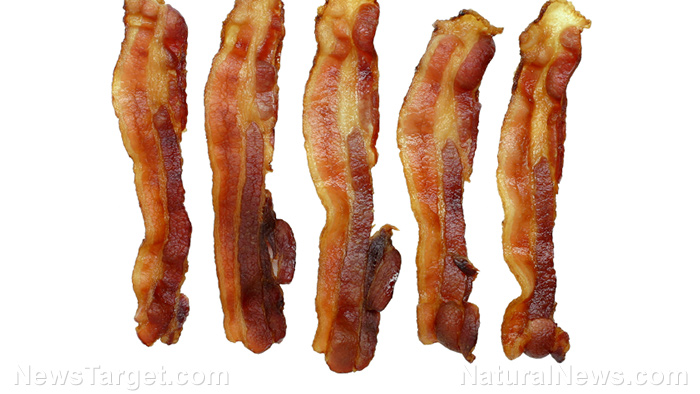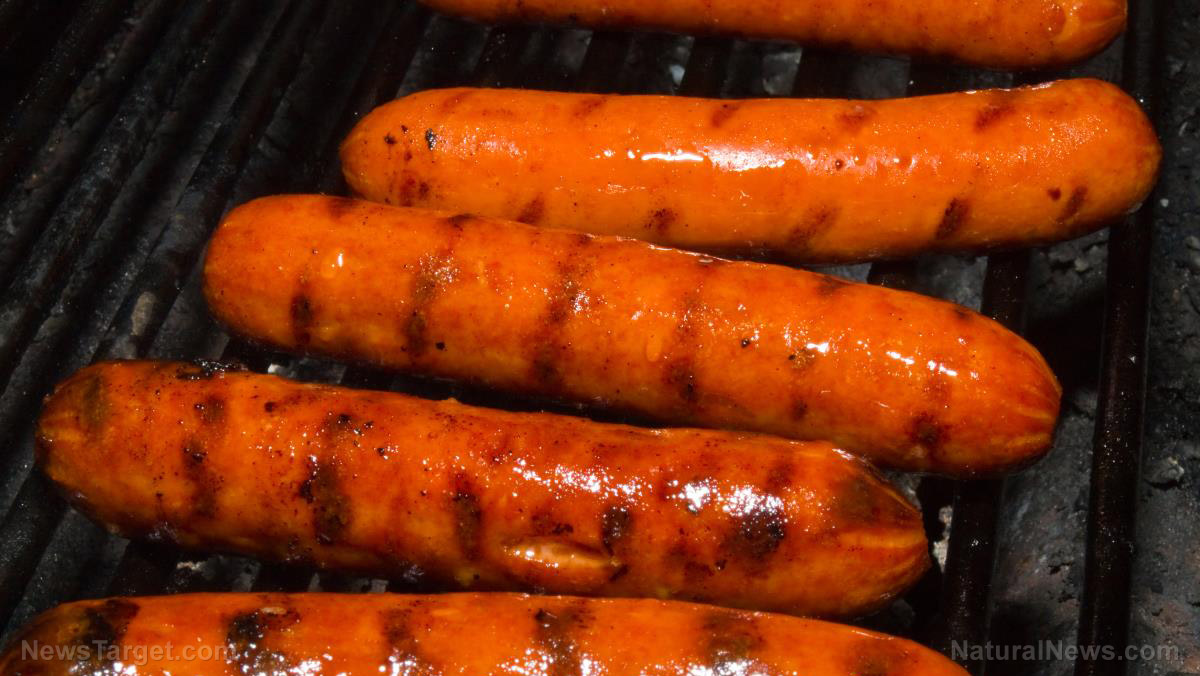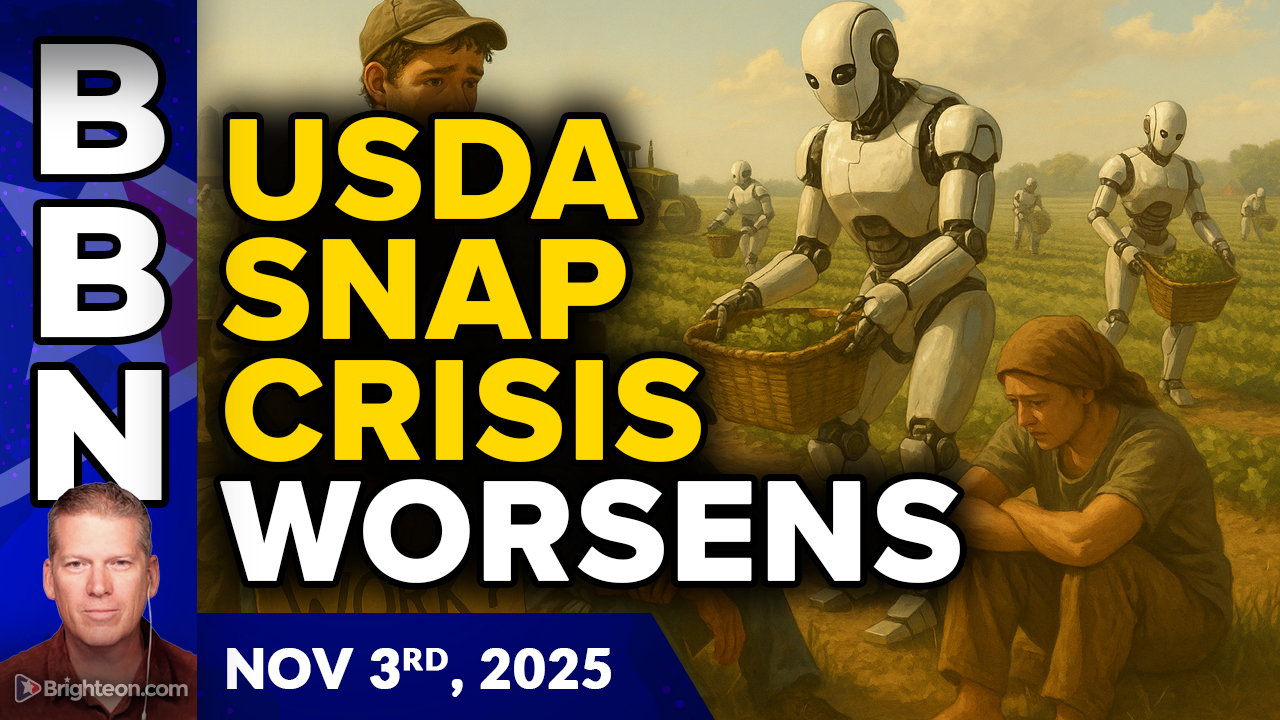 Parler
Parler Gab
Gab
- A U.K. coalition led by Prof. Chris Elliott warns that nitrites in processed meats have contributed to 54,000 bowel cancer cases in the past decade, costing the NHS £3 billion in treatment.
- The WHO’s International Agency for Research on Cancer (IARC) classified processed meats as Group 1 carcinogens (like tobacco and asbestos) in 2015, yet U.K. regulators have failed to act.
- Nitrites react in the stomach to form nitrosamines, potent carcinogens linked to 5,400 annual bowel cancer cases in the U.K. alone.
- The British Food Standards Agency (FSA) claims nitrites prevent botulism, but the coalition counters that nitrite-free bacon exists without any botulism outbreaks.
- 69 percent of Britons support banning nitrites and France has already moved to reduce nitrite levels by 20 percent, while the U.K. lags behind despite cross-party political backing.
The fight for nitrite-free meats
But the coalition's stance places it in direct opposition to the official position of the British Food Standards Agency (FSA). The FSA maintains that nitrites are "essential" for food safety, specifically to prevent the growth of deadly bacteria like Clostridium botulinum, which causes botulism. The coalition fiercely contests this argument, pointing to the existence of nitrite-free products and the complete absence of any recorded cases of botulism linked to them as proof that the safety justification is outdated. A leaked industry report from 2019 is also cited as evidence that nitrites may not offer the protection against bacteria that regulators claim. The call for a ban has garnered significant cross-party political support, uniting members from seven different U.K. political parties. Lord James Bethell, a former Conservative health minister, has publicly backed the campaign, emphasizing the urgent need for a preventative health strategy. He noted that colorectal cancer is the fourth most common cancer in the U.K., with about 120 new cases diagnosed every single day. This political momentum is mirrored by public opinion, with recent polling indicating that 69 percent of Britons support the removal of nitrites from their food. The campaign is not isolated to the U.K., crossing over to the English channel. In France, a similar movement has already prompted government action, resulting in an official plan to immediately reduce nitrite levels in deli meats by approximately 20 percent. The French health agency has confirmed the direct link between nitrites in ham and colorectal cancer, lending further weight to the coalition's arguments. This contrast highlights a growing regulatory divergence, with the European Union moving to tighten its rules on nitrite use while the UK lags behind. Despite the availability of alternatives, the coalition acknowledges the scale of the challenge. Over 90 percent of the European processed meat market is still dominated by products containing nitrites. Changing this will require a concerted effort from regulators, producers and retailers. The coalition's members argue that with modern food technologies, it is entirely feasible to produce the bacon consumers love with the same taste, appearance and cost – but without the carcinogenic chemicals. The group has vowed to maintain pressure on the government until its mission is achieved. But for the millions who enjoy a traditional breakfast, the outcome of this clash between science, industry and regulation will have profound implications for the future of the food on their plates. Watch this video explaining that people give themselves cancer every day with unhealthy and toxic lifestyle choices. This video is from the BrightU Series Snippets channel on Brighteon.com. Sources include: DailyMail.com NewFoodMagazine.com BrightU.ai Brighteon.comAlarming research reveals increased SUICIDE risk among transgender individuals post-surgery
By Patrick Lewis // Share
Study: Sleep deprivation forces the brain into micro-sleeps–with dangerous consequences
By Belle Carter // Share
Sodium nitrite: The toxic preservative hiding in processed meats
By Laura Harris // Share
New research explains how artificial light at night is programming your body for heart disease
By Lance D Johnson // Share
AI farm robots and food aid stalemate raise concerns over jobs and food security
By Finn Heartley // Share
Governments continue to obscure COVID-19 vaccine data amid rising concerns over excess deaths
By patricklewis // Share
Tech giant Microsoft backs EXTINCTION with its support of carbon capture programs
By ramontomeydw // Share
Germany to resume arms exports to Israel despite repeated ceasefire violations
By isabelle // Share










